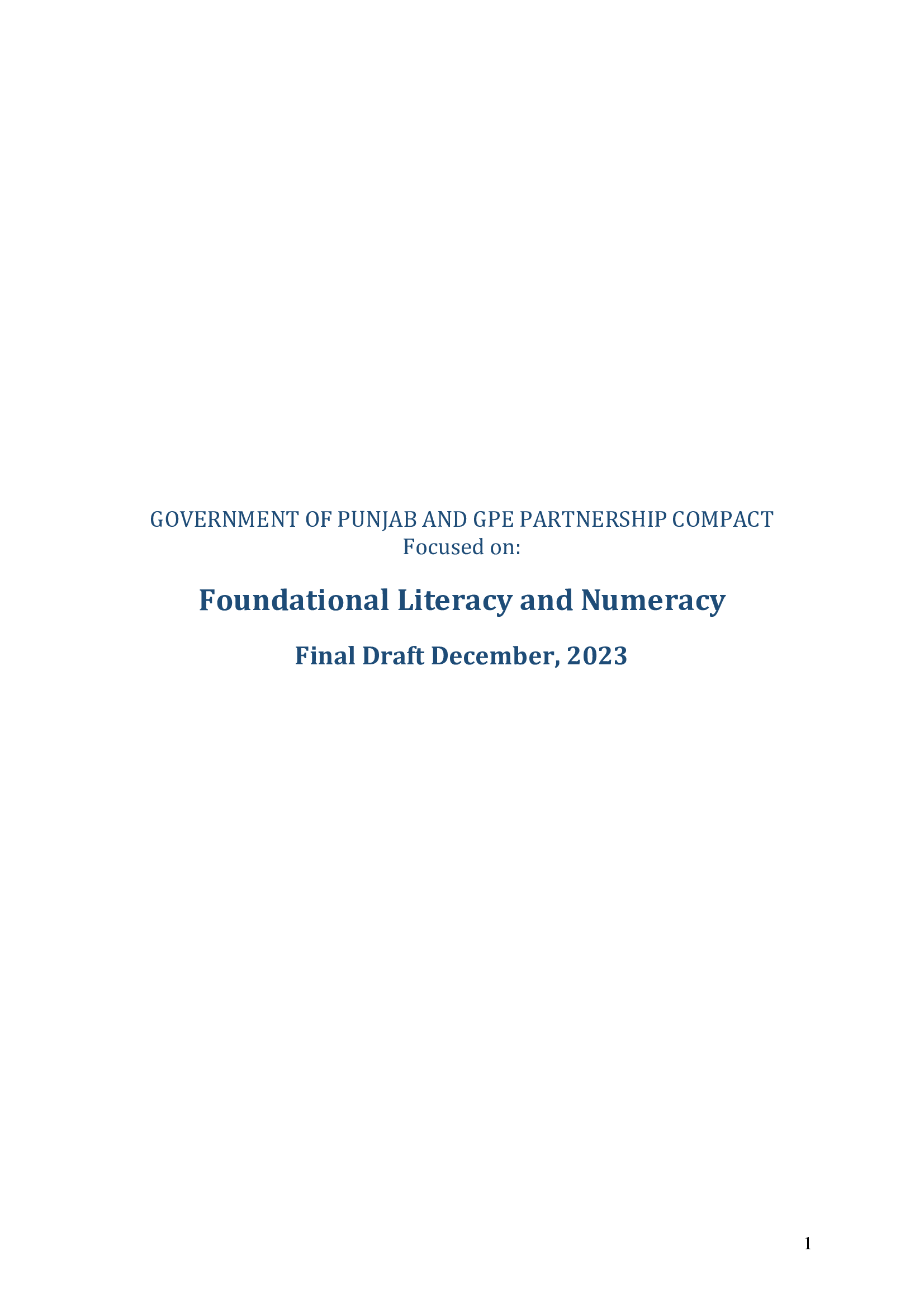The delivery of education services in Pakistan is severely impacted by economic, political and security challenges that the country has been facing for some years.
The 18th Amendment to the Constitution of Pakistan, approved in 2010, devolved responsibility for education delivery and spending to provincial governments. The federal ministry retains some limited mandates, mainly in curriculum development, accreditation and the financing of research and development.
Transforming education in Balochistan
Despite Balochistan’s increased spending on education, participation rates and learning levels remain low, especially for girls. The province is working with GPE and other partners to transform the education system in Balochistan through improving learning outcomes at the early childhood education and primary level.
Balochistan’s Partnership Compact amplifies ongoing efforts to equip students with foundational skills. Measures to increase children’s readiness to enter primary school include enhancing early learning classrooms with age-appropriate and gender-responsive learning materials, as well as water, sanitation and hygiene facilities.
At the primary level, Balochistan will increase access to learning materials, including technology-based blended learning. The government is committed to improving service delivery through better trained and supported teachers, improved use of education data, and enhanced decentralized school governance.
A focus on gender equality in and through education calls for raising community awareness about girls’ education, recruiting more female teachers, and reviewing the curriculum to identify and remove gender bias.
Transforming education in Khyber Pakhtunkhwa
In Khyber Pakhtunkhwa, around 50% of primary school age children attend primary education, and more than half drop out of school before reaching secondary education. Fewer girls attend school than boys, and they have lower learning outcomes.
The province is working with GPE and other partners to improve learning at the primary level, and effective transition and retention at the middle level, especially for girls, through strengthening processes and management.
As outlined in Khyber Pakhtunkhwa’s Partnership Compact, the priority reform involves improving the learning environment, teaching training, student assessments, system governance, and community awareness on the importance of education.
Supporting students to transition to and progress through middle level education requires interventions that foster equitable access, such as more learning spaces (formal and non-formal) and the provision of school supplies and transportation, as well as water, sanitation and hygiene facilities for girls.
Efforts to improve education system governance include better data use and more equitable distribution of resources across schools and districts.
Transforming education in Punjab
Over the past two decades, Punjab has increased enrollment and narrowed the gender gap in education access, but low learning levels persist: 65% of children aged 10 are unable to read and understand a simple text.
Punjab is working with GPE and other partners to improve learning outcomes through provision of literacy and numeracy and skills at the pre-primary and primary levels and remedial learning at middle levels with a special focus on girls and out-of-school children.
As outlined in Punjab’s Partnership Compact, achieving the priority reform includes supporting school readiness through investments in early childhood education.
Reforms in content, learning assessments and teacher training aim to develop literacy and numeracy skills at the primary level. Remedial learning for students in grades 6 to 8 will help address learning gaps, and non-formal learning opportunities will equip out-of-school children with the skills needed to enter school.
Measures to make the education system more inclusive include establishing gender-inclusive teaching and learning processes and better identifying and supporting the learning needs of children with disabilities.
Transforming education in Sindh
Sindh’s primary net enrollment is at 55% and secondary is at 22%. The province is estimated to have the second-highest proportion of out-of-school children in the country at over 30%.
Disparities in access to education by gender, disability, income, and geographic location call for transformative change. Sindh is working with GPE and other partners towards equitable access to quality learning at primary level and creating an enabling environment for transition.
As outlined in Sindh’s Partnership Compact this two-pronged approach addresses immediate access needs while laying the foundation for learning.
Measures to improve access include increasing school infrastructure, expanding non-formal education programs for out-of-school children, and engaging communities to help address barriers to education.
Measures to boost education quality include improving teaching and learning materials, strengthening teacher training and school leadership, and ensuring student assessments inform teaching practices.
A focus on gender, policy advocacy and capacity building aims to ensure gender-sensitive planning and programming that contribute to a more equitable system.


